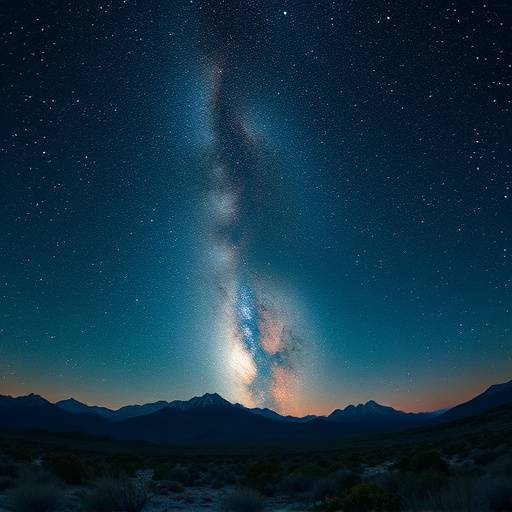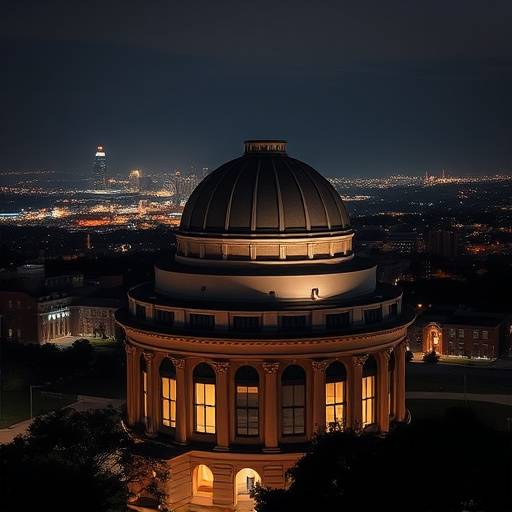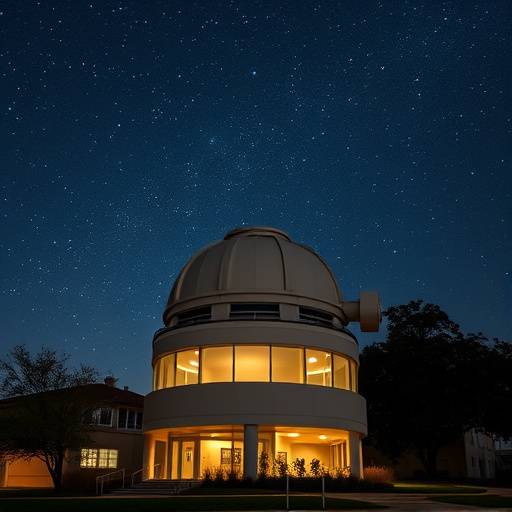
George Observatory, Brazos Bend State Park
Located in Brazos Bend State Park, about an hour southwest of Houston, the George Observatory offers unparalleled stargazing opportunities. Equipped with multiple large telescopes, the observatory provides public viewing nights where visitors can observe planets, stars, and deep-sky objects. The park itself has designated dark sky areas, minimizing light pollution for optimal celestial viewing. Dr. Aris Thorne, a renowned astronomer, often leads viewing sessions, sharing his expertise and passion for the cosmos.
View Details

Houston Museum of Natural Science Planetarium
The Burke Baker Planetarium, part of the Houston Museum of Natural Science, provides an immersive astronomical experience within the city. Although not a traditional stargazing location due to city lights, the planetarium offers incredible simulated views of the night sky, cosmic events, and educational programs. Led by Emily Carter, the planetarium's director, shows cover topics from the solar system to black holes, captivating audiences of all ages. The planetarium also hosts special events, including telescope viewing nights on the museum's grounds, weather permitting.
View Details

Davy Crockett National Forest (Designated Dark Sky Area)
Venture a few hours north of Houston to Davy Crockett National Forest, a designated Dark Sky Area, offering incredibly dark skies ideal for stargazing. Away from city lights, the forest allows for naked-eye viewing of the Milky Way, constellations, and meteor showers. The local astronomy club, the Piney Woods Astronomers, often organizes events and viewing sessions within the forest. Pack camping gear for an overnight experience, or simply drive in for an evening of celestial observation. Remember to check the weather forecast for clear skies!
View Details

Stephen F. Austin State University Observatory (Visiting Programs)
Celestial Navigations collaborates with Stephen F. Austin State University's Physics and Astronomy Department to provide unique visiting programs at their university observatory. These programs allow attendees to utilize sophisticated telescopes and learn from prominent astronomers and astrophysicists in East Texas. Investigate research-grade equipment and acquire insights into the most recent findings in space exploration. Please refer to our events calendar for details on registration and impending dates. Professor Evelyn Reed heads the outreach programs and provides expert guidance during observing sessions.
View Details

Sam Houston State University Observatory
Located in Huntsville, the Sam Houston State University Observatory provides a more accessible location for stargazing, particularly for those residing north of Houston. While influenced by some light pollution, the observatory offers public viewing nights and educational events that cater to both beginners and experienced stargazers. Dr. Marcus Kepler, a professor of astronomy, frequently hosts workshops on telescope operation and celestial navigation. Check the university's event calendar for upcoming viewing schedules and program details.
View Details

Lake Conroe (Dark Sky Potential)
While not an official dark sky site, areas around Lake Conroe, particularly on the northern and western shores, offer decent stargazing potential. The lake's expansive surface provides a dark foreground, and with some strategic positioning away from lakeside houses and businesses, one can enjoy reasonably dark skies. Local astronomy enthusiasts often gather at designated spots along the lake for impromptu viewing sessions. Consult dark sky maps to find the darkest areas around the lake for the best experience. Bring a blanket, binoculars, and a star chart to maximize your enjoyment.
View Details